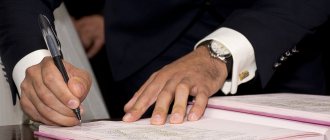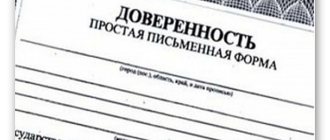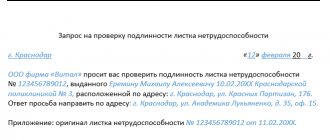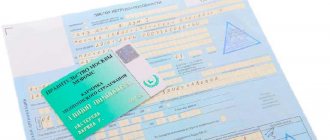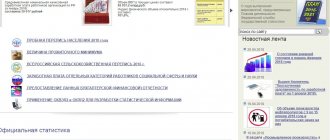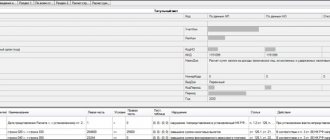Verifying the validity of a power of attorney is the process of establishing the authenticity of a document authorizing one person (person or organization) to represent the interests of another. The complexity of the procedure depends on whether the document has been notarized.
Chapter 10 of the Civil Code allows some persons to make transactions on behalf of others. And the second party may have a suspicion: does the representative have the right to perform the actions? If not, then the imaginary principal can challenge the transaction. To avoid this, you need to check the authenticity of such important trust deeds.
When is a power of attorney required?
It is worth noting that since 2014, cases of fraud have become more frequent when concluding various transactions on the basis of a power of attorney issued by a notary. How does this happen? Fraudsters enter into contracts on the basis of a document that, for example, has lost its force or has been revoked by the principal. Accordingly, such transactions are declared invalid by a court decision. As a result, the buyer (if something was purchased) is left without money and without the purchased property.
There are cases when scammers use powers of attorney that were never issued.
They forge forms and seals of existing notaries. Without a thorough check, it will not be possible to detect such a fact of forgery.
The power of attorney must be checked in such cases.
:
- concluding agreements between individuals;
- when purchasing real estate or other property;
- concluding transactions between legal entities and individuals;
- registration of permission to dispose of property, and so on.
It is imperative to check the power of attorney when purchasing real estate. After all, scammers use exactly this method of selling.
By law, verification of the authenticity of a power of attorney is not mandatory. This is more of a recommendation when concluding any transactions to ensure buyer protection.
Article 185 of the Civil Code of the Russian Federation states that the authority of a representative of an individual or legal entity is confirmed by a power of attorney certified by a notary. It is issued for a certain period. It must indicate the powers of the representative.
Fraudsters use powers of attorney for transactions in simple written form
If the transaction is executed in simple written form, that is, without the participation of a notary, then the presence in the list of documents of a power of attorney in notarial form does not in any way affect its legality and security. In the case of a power of attorney, the notary only confirms the applicant’s desire to empower a third party to represent his interests in certain situations. Unscrupulous intermediaries often use a “general power of attorney” as a key tool for fraud. It is with its help that you can dispose of the principal’s property on conditions that he does not even suspect. After the transaction has been completed, it will be difficult for the owner to prove that he did not know about the consequences. And there will be no one to demand compensation for damages from.
Those who want to have one hundred percent guarantees of the legality of the transaction and the protection of their rights are recommended to notarize not the power of attorney, but the transaction itself. Only in this case can the parties be confident in the agreement they are signing, as well as in the accuracy of all information and documents.
Who has the right to check the authenticity of a power of attorney?
Firstly, these are the persons who are directly involved in the transaction. Secondly, investigative and judicial authorities and their representatives. Thirdly, legal representatives in whose name the power of attorney was issued.
Until 2021, third parties could not participate in document verification. This rule was enshrined in law. They could only check that the power of attorney was filled out correctly.
Such measures were taken based on laws and regulations regarding the confidentiality of information about documents.
Since 2021, everything has changed. FNP (Federal Chamber of Notaries) has opened a service where you can easily verify the authenticity of a power of attorney. This has significantly reduced the number of illegal transactions.
Why check them?
The need to verify powers of attorney is dictated by the practice of concluding transactions and related cases of fraudulent activities.
So, scammers can use:
- a completely false power of attorney, which was not actually issued;
- an expired power of attorney, which for this reason no longer has legal force;
- revoked power of attorney, powers under which are terminated at the will of the principal.
Transactions concluded on the basis of these documents are invalid and may subsequently give rise to legal proceedings. Often this situation leads to financial losses for one of the parties. This conclusion can be drawn from Art. 174 and 183 of the Civil Code of the Russian Federation.
By the way! Not only the parties to the transaction and their representatives, but also representatives of the investigation, courts, bailiffs, and notaries can carry out verification.
Ways to verify a power of attorney
There are several of them:
- on the official website of the FNP in the register of powers of attorney;
- upon written request to the Federal Tax Service;
- directly from the notary who issued the power of attorney.
Let's look at each of them.
Check in the register on the FNP website
To do this, you need to go to the Internet resource https://www.reestr-dover.ru/ “Checking powers of attorney using details.”
In the window that opens, there will be a form in which the required fields are marked with asterisks. The user needs to provide the following information
:
- document registration number;
- date of its certification (certification);
- information about who exactly certified the power of attorney (full name of the notary/consular officer/local government official);
- the region in which the power of attorney was certified.
After this, you need to click on the “Find” button.
The automatic system will provide information about who issued the document and when, its validity period and other data. If errors were made when filling out the form, the system will prompt you to clarify the document number or full name of the notary. If the power of attorney has been revoked, information about this will be on the screen.
Written request to the FNP (Federal Notary Chamber)
This method of verification cannot be called operational. It takes time for the request to be delivered. And then the answer should come to it.
So, to find out the authenticity of the power of attorney, you need to make a written request. There is no approved form for it. You need to indicate in it the details of the power of attorney and the name of the notary who issued it. It would be useful to attach a copy of it. The request must be sent by registered mail with notification.
Advice. To quickly check the authenticity of a power of attorney, it is better to use the service of the Federal Notary Chamber.
Check with a notary
Each document certified by a notary contains his contact information. To verify the authenticity of the power of attorney, you can contact the notary who issued it.
The verification service is paid.
Unfortunately, no notary is immune from fraudsters. Any forms can be forged, as well as signatures with seals. Therefore, if the notary’s database does not contain information about the requested power of attorney, this does not mean that he is in collusion with a criminal group. This will serve as a signal for him to contact law enforcement agencies.
Date of issue of the power of attorney, consequences of its absence
The date of execution of the power of attorney is a mandatory detail. Thanks to it, the beginning and end of the power of attorney are counted.
The absence of a date leads to the nullity of the document. The reason for establishing such consequences is the impossibility of determining the period for which it was issued.
The nullity of a document is of a nature that does not require filing a corresponding claim in court. Any counterparty who has studied it will come to the conclusion that it is impossible to establish the duration of the power of attorney, and will not enter into an agreement with the participation of this representative.
Checking a canceled power of attorney
It is also performed on the FNP website. To do this, go to the “Information on cancellation of power of attorney” tab.
To find the information you need, click on the “Search” button. A new window opens.
It contains the following information:
- document registration number;
- the date of his certificate;
- Full name of the notary and other necessary information.
After filling out the fields, click on the “Find” button. If the system has information about revoking the power of attorney, it will appear on the screen.
The Supreme Court explains... Or everything about the power of attorney
SHOULD THE REGISTRATION OF THE AUTHORITY OF A REPRESENTATIVE ALWAYS BE CONTAINED IN A SEPARATE DOCUMENT (POWER OF ATTORNEY)?
Answer:
In accordance with the legal position of the Supreme Court of the Russian Federation (hereinafter referred to as the Supreme Court of the Russian Federation), a power of attorney must be understood as a written authority issued by one person to another person for representation before third parties1. At the same time, the Supreme Court of the Russian Federation emphasizes that the authority to represent interests in court can be contained both in a separate document (power of attorney), and in an agreement, and in a decision of a meeting, unless otherwise provided by law. Thus, if the agreement, along with its terms, contains a written authorization of an employee of the organization to represent the interests of a legal entity, signed by the general director, the power of attorney does not need to be drawn up as a separate document.
However, to represent the interests of an organization in a number of government bodies, a separately issued power of attorney is required. The obligation of an organization to issue its employees a power of attorney to represent interests in the tax office and extra-budgetary funds is directly enshrined in federal laws2.
As for representing the interests of a legal entity in court, in accordance with the arbitration procedural legislation, the powers of the representative can be expressed in a statement by the represented person, made at the court hearing, as indicated in the minutes of the court session3. Thus, for a company employee to participate in court proceedings to represent the interests of a legal entity, either a written power of attorney certified by the signature of the general director is required, or the general director has the right to verbally declare at a court hearing that this employee has the authority to represent the interests of the organization in court. It should be noted that a power of attorney for the right to participate in the consideration of a case does not require notarization4.
CAN A POWER OF ATTORNEY BE ISSUED TO REPRESENT THE INTERESTS OF THE CLIENT BY SEVERAL REPRESENTATIVES AT THE SAME TIME?
Answer:
According to the Supreme Court of the Russian Federation, the legislation allows one person to issue a power of attorney to several persons5. It is necessary to take into account that if the power of attorney does not contain an express clause on joint representation, the representatives exercise their powers separately. In this case, the refusal of the powers of one of the representatives or the cancellation of his powers by the represented entails the termination of the power of attorney only in relation to the specified representative. The power of attorney for other representatives is valid.
If the power of attorney contains a condition that the powers must be exercised jointly, then the refusal of one of the representatives entails the termination of the power of attorney as a whole6. In addition, in the case where the power of attorney on the joint exercise of powers provides for sub-assignment, its implementation is possible only by all representatives jointly7.
IS IT NECESSARY TO EXECUTE A POWER OF ATTORNEY TO THE MANAGER OF THE BRANCH OR IS THE REFERENCE TO THE ASSIGNMENT OF POWERS IN THE REGULATIONS ON THE BRANCH SUFFICIENT?
Answer:
The Supreme Court of the Russian Federation in its ruling indicated that the powers of the head of a branch (representative office) must be certified by a power of attorney and cannot be based only on the instructions contained in the constituent documents of a legal entity, the regulations on the branch (representative office), or appear from the situation in which the head operates branch8.
In this case, the head of the branch can delegate his powers to another person, for example, an employee of the branch, in the case where the delegation is permitted by a power of attorney to vest the powers of the head of the branch. The provision that the transfer of power of attorney by the head of the branch is drawn up in simple written form and does not require notarization is a novelty in civil legislation9.
If an agreement is signed on behalf of the company by its employee, acting on the basis of a power of attorney issued by way of substitution by the head of a branch of a legal entity, it is necessary to provide the other party to the transaction with two powers of attorney: the initial one for the head of the branch and the power of attorney issued by way of substitution.
HOW IS THE TRANSFER OF THE AUTHORITY OF A REPRESENTATIVE IN COURT PERFORMED?
Answer:
As a general rule, the transfer of powers is carried out by issuing a power of attorney to a new representative. In this case, a power of attorney issued by way of delegation must be notarized. However, taking into account the provision of arbitration legislation, according to which the powers of a representative can be determined in an oral or written statement of the principal, it must be borne in mind that the powers of a new representative can be determined in an oral or written statement of the original representative in court10.
IS IT NECESSARY TO APPLY THE ORGANIZATION'S SEAL ON A POWER OF ATTORNEY WHEN REPRESENTING THE INTERESTS OF A LEGAL ENTITY IN COURT?
Answer:
In connection with the abolition of the seal of business entities11, the Supreme Court of the Russian Federation explained that a power of attorney to represent the interests of an organization in court must be certified by the seal of the organization only in two cases:
- if the federal law contains a requirement for a legal entity of a certain organizational and legal form to have a seal (for example, such an obligation is established for unitary enterprises12);
- if the constituent documents of the organization contain information about the presence of a seal for this legal entity.
In other cases, certification of a power of attorney to represent interests in court with a seal is not required13.
IN WHAT CASES IS A NOTARIARY FORM OF POWER OF ATTORNEY REQUIRED WHEN PERFORMING TRANSACTIONS ON BEHALF OF A LEGAL ENTITY?
Answer:
As a general rule, a power of attorney issued on behalf of a legal entity does not require notarization14. However, powers of attorney to dispose of rights registered in state registers must be notarized15. The Supreme Court of the Russian Federation in its resolution provides an approximate list of transactions of a legal entity for which a notarized power of attorney is required. Thus, these include powers of attorney that authorize a representative to alienate property, the rights to which are registered in the register (for example, concluding contracts of sale, exchange, donation in relation to such property), as well as to establish limited real rights to it (in particular, establishing an easement or mortgage)16.
THE PERSON WHO ISSUED A POWER OF ATTORNEY IN THE ORDER OF Clause 3 OF ART. 185.1 of the Civil Code of the Russian Federation, CERTIFIED YOUR SIGNATURE?
#FOOTNOTE# Answer:
In accordance with paragraph 3 of Art. 185.1 of the Civil Code of the Russian Federation, a power of attorney to receive wages and other payments related to labor relations can be certified by the organization in which the principal works. However, due to the legal position of the Supreme Court of the Russian Federation, certification of the principal’s signature consists of confirmation by the organization where the principal works that it was he, and not some other person, who signed the power of attorney. Certification of his signature by the principal himself contradicts the meaning of this paragraph. The person who issued the power of attorney cannot certify his signature. Such signature verification does not guarantee to third parties, who are subsequently presented with a power of attorney, the authenticity of the principal’s signature. Thus, the signature of the employee who issued the power of attorney must be certified by the head of the organization or a notary17.
WHAT IS THE PROCEDURE FOR ISSUING A POWER OF ATTORNEY BY AN INDIVIDUAL ENTREPRENEUR?
Answer:
Any person authorized to do so by a power of attorney can represent the interests of an individual entrepreneur. The procedure for issuing a power of attorney by an individual entrepreneur differs from issuing a power of attorney by a legal entity. In accordance with procedural legislation, a power of attorney on behalf of an individual entrepreneur must be signed by him and sealed with his seal. If an individual entrepreneur does not have a seal, representation of his interests is possible only on the basis of a notarized power of attorney18.
Amendments have been made to the Tax Code of the Russian Federation, according to which invoices issued on behalf of an entrepreneur may be signed by another person who is authorized by a power of attorney on behalf of an individual entrepreneur, indicating the details of the state registration certificate of this individual entrepreneur19. However, when representing the interests of an individual entrepreneur in the tax authority, including when signing invoices by another person, due to clarifications of the Supreme Arbitration Court of the Russian Federation, it is necessary to draw up a notarized power of attorney20.
IN WHAT CASES DOES A POWER OFFER TERMINATE ITS VALIDITY?
Answer:
The power of attorney terminates if the power of attorney has expired, if the power of attorney is canceled by the principal or the attorney refuses it, as well as in cases provided for by law.
Current legislation does not limit the validity period of a power of attorney. However, if the power of attorney does not indicate its validity period, it is valid for a year from the date of its execution21. Upon expiration of the period for which the power of attorney was issued, its validity is terminated.
During the validity of the power of attorney, the principal has the right to cancel it. In accordance with the norms of civil law, the power of attorney is canceled by publication in an official publication in which information about bankruptcy is published22. In this case, third parties are considered to be notified of the cancellation of the power of attorney after a month from the date of said publication, if they were not notified of the cancellation of the power of attorney earlier.
However, in the case where a power of attorney was issued to carry out a transaction with a specific counterparty, in addition to publishing the cancellation of the power of attorney, the legal entity must simultaneously notify this counterparty that the power of attorney has been cancelled.
The Supreme Court of the Russian Federation also clarified that the rules on publishing a notice of the revocation of a power of attorney also apply when revoking a power of attorney to represent interests in court. During the trial, an interested person has the right to refer to the existence of such a publication. However, in the absence of an appropriate reference from the interested party, when checking the powers of representatives, the court is not obliged to check the presence of publications on the revocation of the power of attorney. The court takes into account the fact of termination of the powers of the representative only upon receipt of notification of the revocation of the power of attorney23.
As for the termination of powers by way of delegation, with the termination of the main power of attorney, the delegation also loses force24. However, the Supreme Court of the Russian Federation emphasized that if a third party is presented with a power of attorney issued by way of delegation, the termination of which he did not know, the rights and obligations acquired as a result of the actions of the person whose powers were terminated remain valid for the represented person and his legal successors25.
By force of law, the power of attorney expires from the date of introduction of the external management procedure. In accordance with bankruptcy legislation26, the powers of the head of the debtor are terminated from the date of introduction of external management, and with the opening of bankruptcy proceedings, the powers of both the head of the debtor and other management bodies are terminated. In connection with this, the validity of powers of attorney issued by these persons to represent the interests of a legal entity is also terminated27.
When it is not possible to check the power of attorney on the FNP website
It happens that when checking a document, information about it is missing in the system. This does not mean that the document is fake.
The system does not provide information about powers of attorney that were certified before 01/01/2017.
But there are cases when a power of attorney was issued after this date, but there is no information about it in the general register. What does this mean
:
- the power of attorney was not certified by a notary (the authenticity is in doubt);
- the issuance and execution of the document was carried out on the day of the inspection on the FNP website.
Information in the registry is updated within a few days
. Therefore, it is better to play it safe and enter into transactions after the document has been verified.
If the power of attorney has not been entered into the general register of the Federal Notary Chamber, you should seek help from the notary who issued it. It is better to postpone the conclusion of the transaction while the document is being verified. Otherwise, you can fall into the hands of scammers, who often act on the basis of invalid powers of attorney.
The procedure for the validity of the power of attorney
Counterparties must be careful not only about the date of execution, but also about the calculation of the time period during which the document will have legal force. An incorrect assessment of this condition may lead to an error when concluding an agreement.
The general rules governing deadlines apply to the procedure for determining on what dates a power of attorney begins and ends. We are talking about Art. 191 and 192 Civil Code.
According to these norms, the period runs from the day following the date determined as the beginning. If expiration is determined not by a date, but by a period (month, year), then the countdown must be carried out from the date of commencement of validity to the corresponding date of the month or the last month of the year when the power of attorney expires.
Author of the article
What powers of attorney are recognized by law?
In accordance with the accepted classification by form, there are three categories of securities:
- Notarized is the safest option, it is easy to check, as it is entered into the register of the notary chamber.
- Certified by an official - for example, the document is confirmed by the head of the enterprise or the chief physician of the hospital.
- Not certified by third parties - the document is filled out by the principal and handed over to his representative. Apart from these two people, no one can confirm that the document was actually executed.
The drawing up of powers of attorney is regulated by Chapter 10 of the Civil Code of the Russian Federation, according to which legal entities and individuals have the right to legally enter into transactions on behalf of other persons. If we rely on the Civil Code of the Russian Federation, then the main types of powers of attorney are certified by a notary and ordinary. According to Article 185.1, certification by a notary office is not always required. But there are exceptions when contacting a notary is necessary:
- when minors participate in the transaction;
- if the document is issued to dispose of rights that are recorded in various registers;
- in case of filing an application for registration of state rights.
What to do with powers of attorney not certified by a notary
Such papers cannot be verified through the government online service. Therefore, first of all, it is recommended to contact the principal. The person must confirm that he actually delegated authority to another person. If possible, you should also check the signature; if it does not match the one in the passport, the paper is invalid.
Important
The principal's handwriting is a more powerful argument. You can try to verify the handwriting yourself, but it is difficult for the average person to identify a fake. There is a handwriting examination, but it is appointed only at the request of the court.
There are situations when the principal is in another city or in a hospital, so it is impossible to contact him. In this case, you can carefully read the document; deceivers may write the person’s passport information incorrectly. Often scammers find a lost passport and enter its number. But when receiving a new identity card, the owner is naturally given a document with a different number and series.
Attention
You can also check your registration in the same way. For example, a dishonest acquaintance knew where a citizen was registered 3 years ago. But during this time the person changed his place of residence, and the power of attorney contained fake data
.
The document is certified by other persons - competent verification
A power of attorney issued by a certain institution always has a number. As a rule, government organizations keep a logbook. Information about the documents issued should be added there. Therefore, to check it is enough to make an official request addressed to the boss.
The head of the institution, for example, the commander of a military unit, must check the number. If the numbers match, the official will confirm the issuance of the power of attorney. If no log is kept, the only evidence is the supervisor's testimony.
Info
To obtain information about a company's tax debt, official representatives of companies need a power of attorney. But there is always a chance that a mistake will be made in the documents, or a dishonest employee will come across. The emergence of an online service for checking powers of attorney has significantly reduced the number of cases of fraud and confusion with documents. But such verification is possible only with notarization; in other cases, it is impossible to guarantee 100% authenticity.

